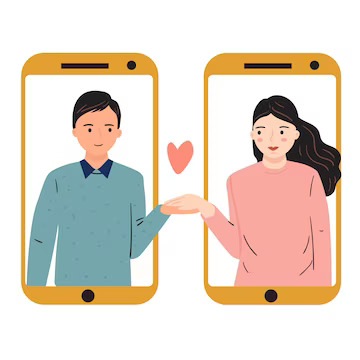Long- distance relationship counseling provides couples with professional support and guidance to navigate the complexities of being apart. Experienced counselors help couples address communication issues, trust issues, and emotional challenges specific to long-distance relationships. Through counseling sessions, couples can develop strategies to maintain intimacy, manage conflicts, and strengthen their connection despite the distance. With the assistance of a counselor, couples can work towards building a strong and fulfilling relationship, even when miles apart.
Do long-distance relationship work?
Yes, long-distance relationship can work. While they come with their challenges, such as communication barriers and physical distance, many couples have successfully navigated them. The key to making it work lies in effective communication, trust, commitment, and finding ways to maintain emotional connection despite the distance. With dedication and effort from both partners, long-distance relationships can thrive and even lead to stronger bonds.
What Are the Risks of Long-Distance Relationship Counselling?
“Feeling overwhelmed by a long-distance relationship ?To discover happiness, seek advice from “Relationship counsellors”.
- Miscommunication: Distance can sometimes exacerbate miscommunication between the couple and the counselor.
- Limited Availability: Finding a counselor who specializes in long-distance relationship counseling may be challenging.
- Time Zone Differences: Scheduling sessions may be difficult due to time zone disparities between the couple and the counselor.
- Technological Issues: Technical glitches during online sessions can disrupt the counseling process.
- Privacy Concerns: Ensuring confidentiality and privacy during online counseling sessions can be more challenging.
- Lack of Physical Presence: Some individuals may feel that the absence of physical presence diminishes the effectiveness of counseling.
- Dependency on Technology: Dependency on technology for communication can lead to feelings of frustration or disconnection.
- Financial Costs: Long-distance counseling sessions may incur additional costs for technology and internet access.
- Cultural Differences: Cultural nuances and differences may not be fully understood or addressed in long-distance counseling.
- Limited Body Language: Online counseling may limit the counselor’s ability to interpret non-verbal cues accurately.
- Distractions: Couples may be more susceptible to distractions during online counseling sessions.
- Incompatibility with Counseling Style: Couples may find that the counseling style of the therapist does not align with their needs or preferences.
- Difficulty Establishing Rapport: Building trust and rapport with a counselor may take longer in a long-distance setting.
- Lack of Physical Support: Couples may miss the physical presence and support of a counselor during challenging moments.
- Emotional Disconnection: Long-distance counseling may contribute to feelings of emotional detachment or distance between the couple and the counselor.
- Reluctance to Open Up: Some individuals may feel less comfortable opening up about personal issues in a virtual setting compared to face-to-face counseling.
It’s important for couples to carefully consider these risks and discuss them with their “Online counsellor” before proceeding with long-distance relationship counselling.
Navigating the Challenges of Long Distance Relationships?
Certainly, here are to help navigate the challenges of long-distance relationship:
- Effective Communication: Establish clear and open lines of communication to maintain connection despite the physical distance.
- Trust Building: Foster trust by being honest, reliable, and transparent with each other.
- Set Goals: Set mutual goals and milestones for the relationship to work towards together.
- Regular Communication: Make an effort to communicate regularly, whether through calls, texts, or video chats.
- Quality Time: Schedule regular virtual dates or activities to spend quality time together.
- Understanding Time Zones: Be mindful of time zone differences and find mutually convenient times for communication.
- Emotional Support: Offer emotional support and validation to each other, especially during challenging times.
- Independence: Foster independence and maintain individual interests and hobbies to avoid feelings of suffocation.
- Visits: Plan visits whenever possible to spend time together in person and strengthen your bond.
- Trust Your Partner: Trust that your partner is committed to the relationship and avoid unnecessary jealousy or suspicion.
- Conflict Resolution: Address conflicts calmly and constructively, using effective communication and active listening.
- Manage Expectations: Be realistic about the challenges of long-distance relationships and manage expectations accordingly.
- Stay Positive: Focus on the positives of the relationship and look forward to the future together.
- Create Rituals: Establish rituals or traditions, such as sending surprise gifts or sharing daily updates, to maintain connection.
- Support Network: Lean on friends, family, or online communities for support and advice during tough times.
- Reassurance: Reassure each other of your commitment and love regularly to maintain intimacy and security in the relationship.
Conclusion
By implementing these strategies, couples can effectively navigate the challenges of long-distance relationship and strengthen their bond despite the physical distance.







